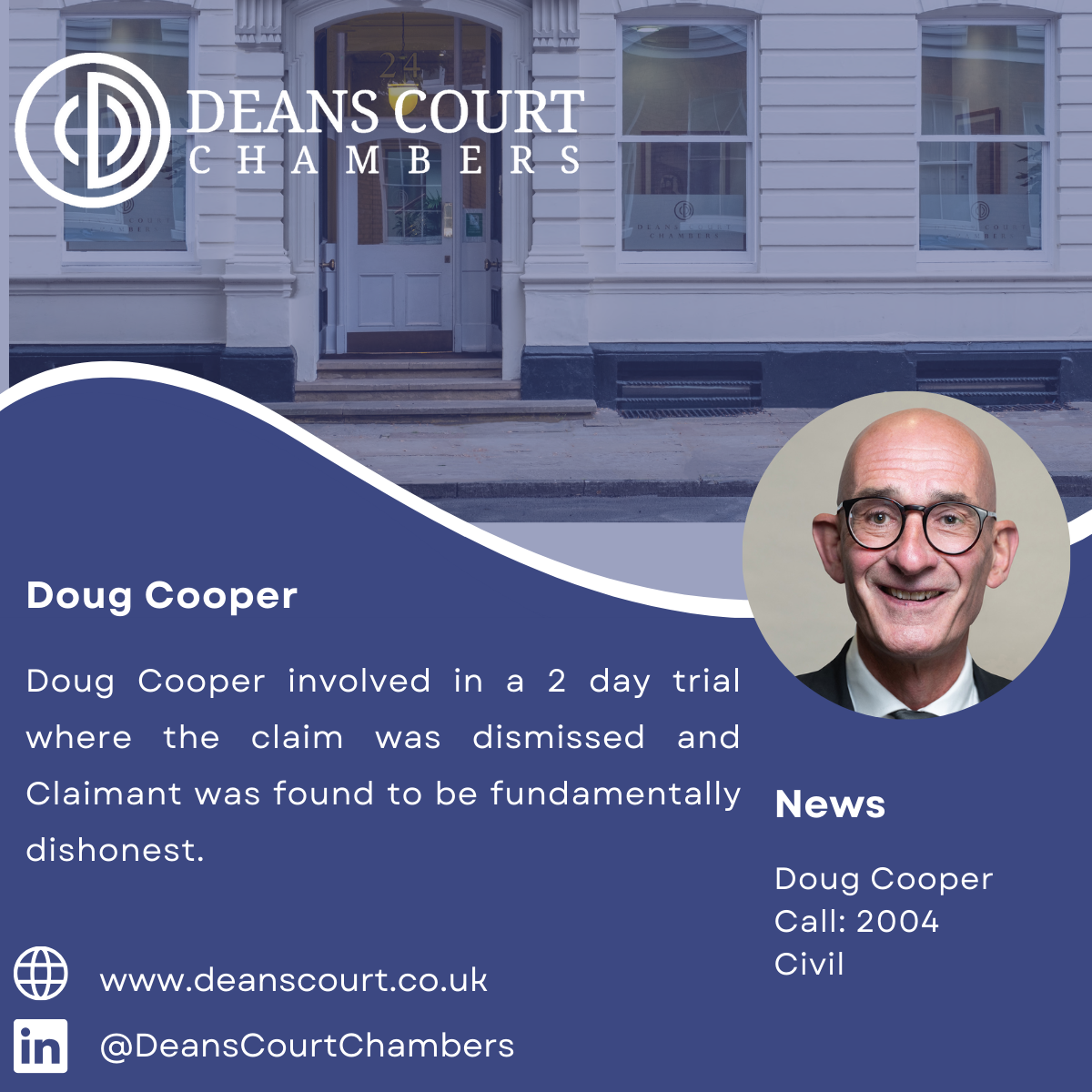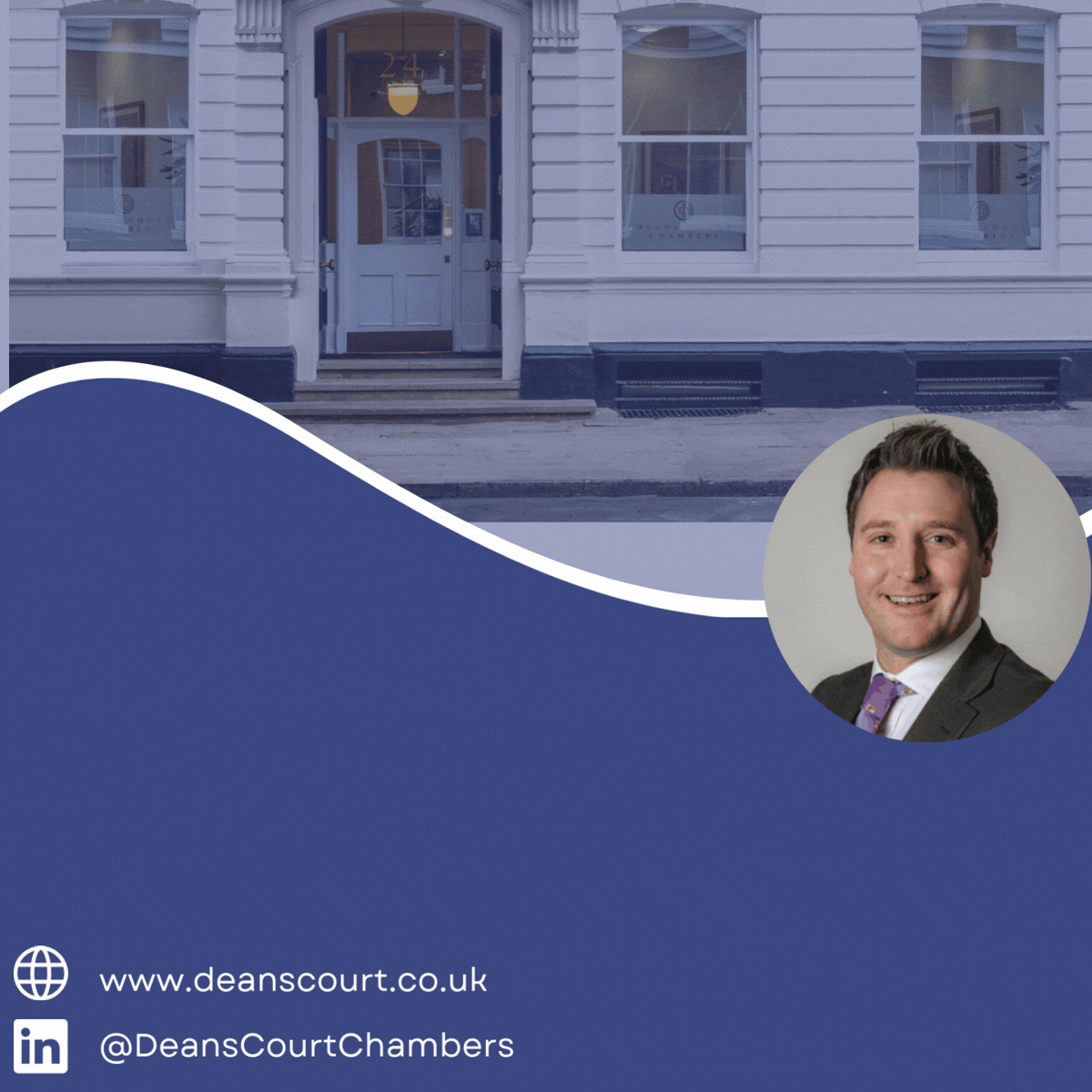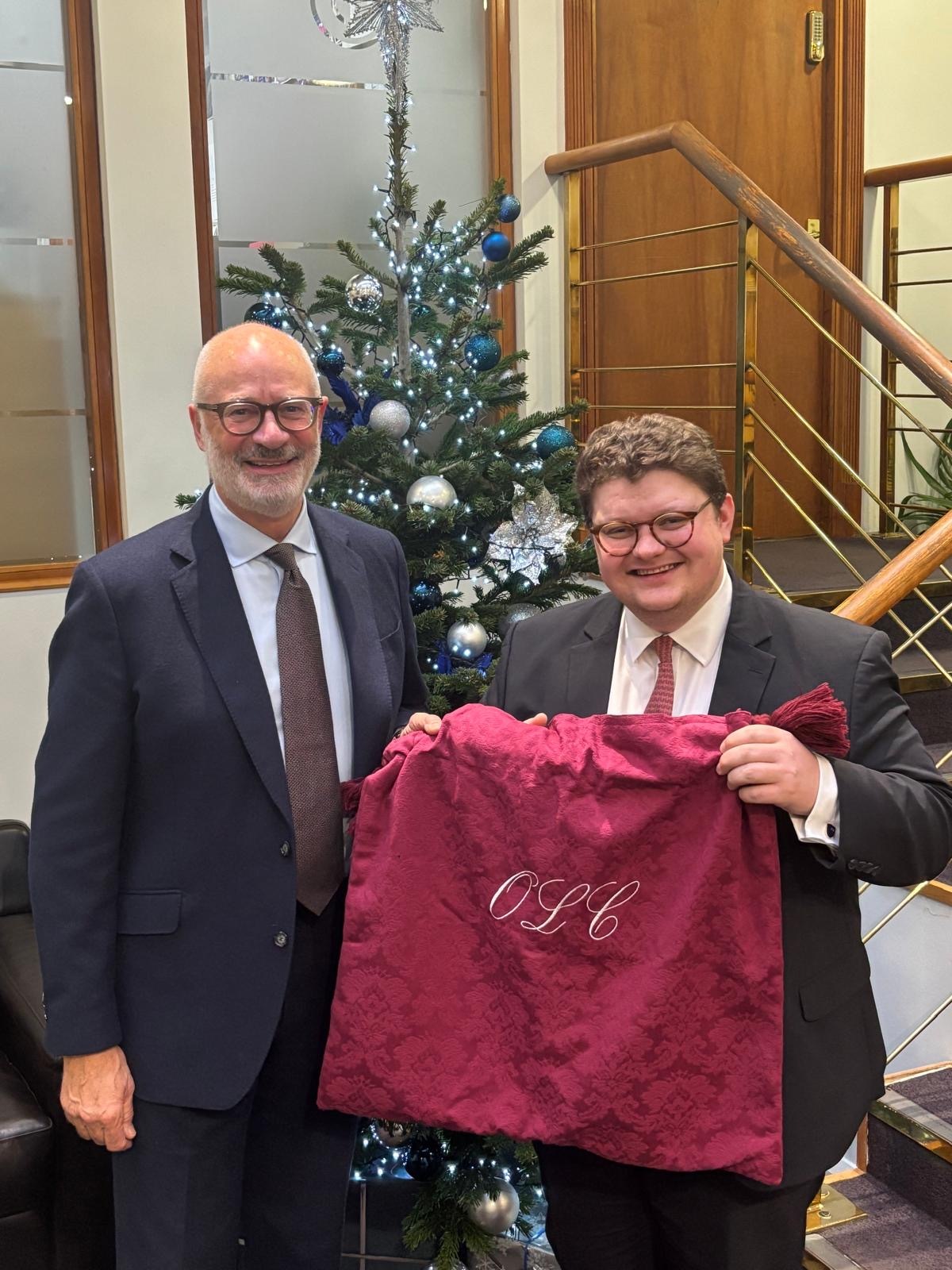Doug Cooper involved in a 2 day trial where the claim was dismissed and Claimant was found to be fundamentally dishonest
On the 7th and 8th August 2025, the trial in the claim of TB v S Norton & Co was heard by Her Honour Judge Howells in the Liverpool County Court.
The facts were that on the 4th January 2020, the Defendant was having foundations laid on part of its vehicle yard. This area was fenced off and lower than the area where the Claimant, who was employed by the Defendant as a lorry driver, would park the lorry he had been driving. At about 1130 am, the Claimant had parked his lorry and walked around the lorry. He slipped from the steps, landing on one side and injured his shoulder and, he said, banged his head on the surface of the lorry park.
Breach of Duty
There were issues of fact between the Claimant and the Defendant’s witness; the Claimant said that he had walked around the lorry when the ground was excessively muddy and slipped as a consequence of mud on his boots when he was re-entering his cab, whereas the Defendant’s witness said that the Claimant fell when he was getting out of his cab and that the lorry park was not ‘muddy’ (the judge looked up this term and concluded it meant a mixture of soil and water) but made of compacted grit. HHJ Howells considered the evidence (including photographs taken by the Claimant) and concluded that the surface was compacted grit, that this would not make his boots slippery and that the Defendant had not created a danger by way of the condition of the parking area surface.
The claim
In late December 2022, the Claimant issued proceedings which were later amended to a claim valued at more than £100,000 comprising PSLA for a shoulder injury and for tinnitus, allegedly caused as a consequence of the blow to the head. The parties obtained their own orthopaedic reports and reports from ENT surgeons. The Claimant sought to recover over £110,000 of lost earnings, in addition to £12,000 of care, having lost his job as a lorry driver. There was little disagreement between the medical experts. In particular, the ENT experts agreed that for the tinnitus to have been caused by the accident, it needed to have become manifest at or around the time of the accident. The ENT experts were not called to give oral evidence at trial.
Shoulder Injury
The Claimant was seen by his orthopaedic expert and some time later by the Defendant’s. To both he similarly described the sort of symptoms consistent with a shoulder injury - in particular that he found carrying heavy shopping difficult and could not use his arm when it was raised above shoulder height, which had stopped his hobby of fishing. However, shortly after seeing his expert and before he saw the Defendant’s, the Claimant was interviewed by the DWP for an assessment of benefits. To the DWP he claimed that he had to use a wheelchair both inside and outside his house, he could mobilise by leaning on furniture, that he had started to sleep downstairs because he had to ‘shuffle up the stairs on his bottom’ and that he had to use a bucket downstairs to urinate in because he could not get upstairs. HHJ Howells concluded that this was manifest evidence of the Claimant’s dishonesty given the stark contrast between the account of his physical injury given to the DWP and, both before and after that, to the parties’ medical experts. However, the Defendant did not submit that this was ‘fundamental’ to the claim but it was relevant to the Claimant’s credibility (even though the Defendant would be liable to repay benefits for the 5 years post accident to the DWP).
Tinnitus
To the experts and in his witness statement, the Claimant described the tinnitus as a ‘jet engine noise’ which interfered with his sleep from which he had suffered since a day or two of the accident. In cross examination, his own medical records were put to him one by one which showed at least 12 attendances on his general practitioner before he mentioned tinnitus. (He did not allege that he had tinnitus when he completed the Claims Notification Form either). In addition, when he first complained of tinnitus to his general practitioner, this was over 18 months after the accident and he said it occurred 6 months before the appointment. This was inconsistent with his written evidence, with his oral evidence at trial and with what he had told the medical experts. When challenged about this, the Claimant sought to explain away the inconsistency by contending that (i) he was more concerned about his shoulder injury so neglected to mention the tinnitus (which was barely consistent with the severity of the complaint) and (ii) he thought it would resolve itself so he didn’t trouble his general practitioner (unfortunately, he had troubled his general practitioner during this period with transient issues such as a cough/snoring).
Claimant’s Counsel (who, to be fair, had little to work with following cross examination of his client) sought, as a last resort, to argue that his client was too thick to lie (sorry, too unsophisticated - a rose by any other name…)
HHJ Howells rejected the Claimant’s evidence in relation to the existence of or onset of his tinnitus and further found that the Claimant could offer no explanation about the fact that his assertions in the context of this claim were flatly contradicted by his own contemporaneous records. She noted that the tinnitus (as ever) only ‘arose’ during the course of a claim for compensation. The tinnitus, it was submitted, was fundamental to the claim because it had caused the Defendant to ‘materially change its response to the claim’. HHJ Howells found that the tinnitus claim was a fundamental part of the claim (not collateral in the Gosling sense).
Accordingly, the claim was dismissed, with the Claimant’s QOCS protection set aside (CPR r44.16) such that the Defendant may enforce its costs against him.
Note
Tinnitus is an entirely subjective condition, which can neither be corroborated nor excluded by any form of objective test. Only once the tariff damages for whiplash claims were introduced, Claimants who were involved in otherwise modest accidents (this was not a most accident) seem to have become vulnerable to impaired hearing (or, as one (anonymous) judge out it, 'the citizens of East Lancashire used to have weak necks but since the whiplash reforms, it seems they have vulnerable hearing’ - paraphrased). Given the high level of damages for genuine claims, tinnitus has become a flame attracting dishonest Claimants like moths. It is common for the chronology of any tinnitus set out in the contemporaneous medical records to contradict such Claimants’ accounts, as it did here. I suspect the ‘ruse’ of a claim for tinnitus only arises in the context of claims for compensation long after the contemporaneous records are made.
This was a case in which the costs exceeded damages by some margin, in part given its slow progress and the need to go through the contemporaneous records carefully. The prospects of success were carefully considered throughout (on the Defendant’s side, at least). It was also a case in which the Defendant company and its insurers (QBE) invested significant time and resource enabling my Instructing Solicitors, Sarah Stutchfield and Danielle McEwan of DWF, to prepare the case thoroughly making my job simple.

Also Recently
-
James Paterson obtains a finding of fundamental dishonesty
James Paterson obtains a finding of fundamental dishonesty in a claim in which the Court adjudicated there was ’no justification’…
Jan 14
-
Tim Horlock KC presents Oliver Carr with Red Bag
Tim Horlock KC presents Oliver Carr with Red BagThe red bag, used to carry the wig and gown, is traditionally…
Dec 05











